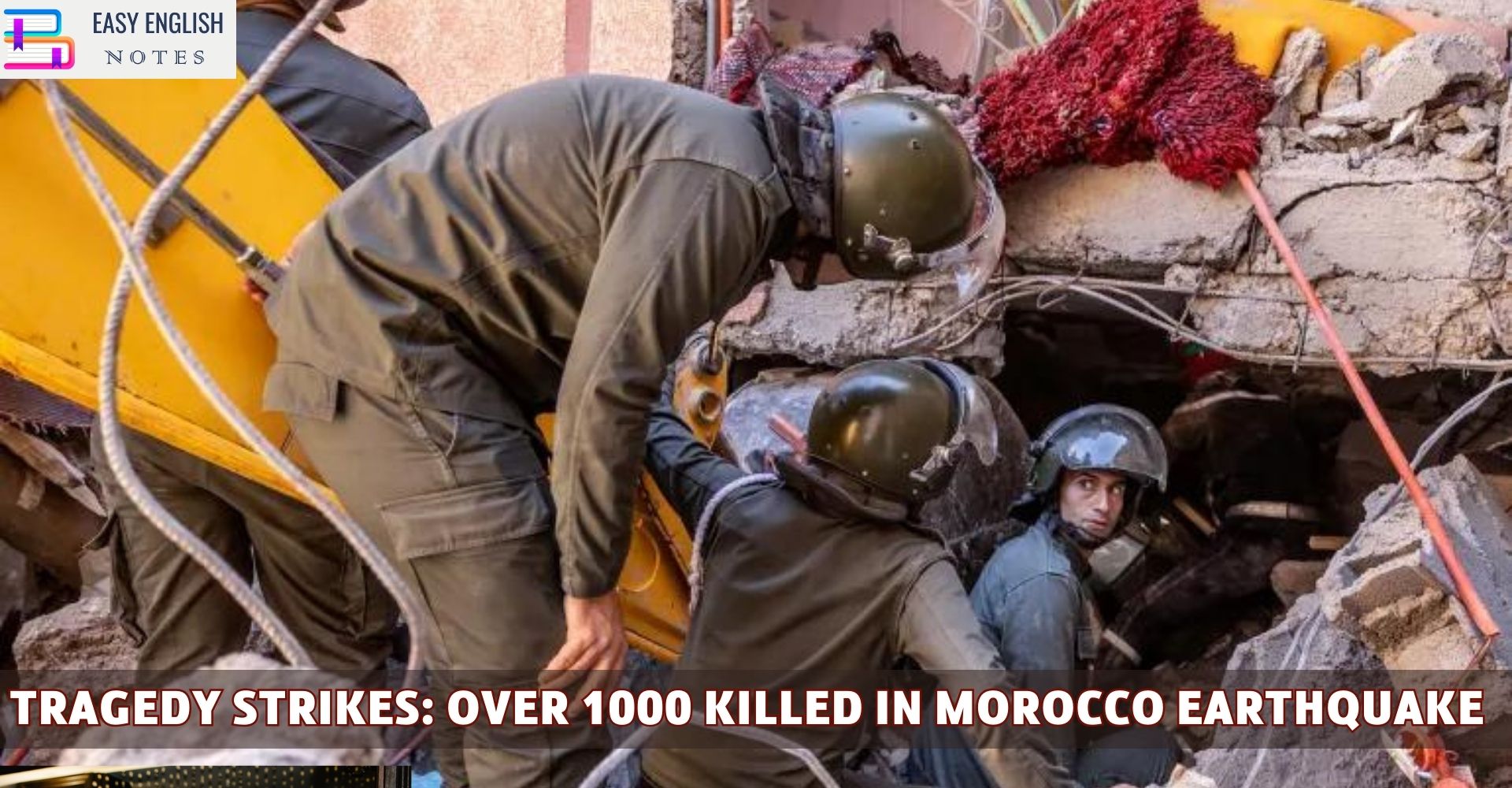Morocco, a country known for its rich history and vibrant culture, was thrust into a state of shock and devastation when it experienced its deadliest earthquake in decades. Striking with a magnitude of 6.8, the earthquake left over 1,000 people dead and caused widespread damage, sending terrified residents and tourists scrambling for safety in the middle of the night.
The epicenter of the earthquake was located in a mountainous area approximately 72 kilometers (45 miles) southwest of Marrakesh, a popular tourist destination. The seismic event occurred at 11:11 pm (2211 GMT) on a fateful Friday, as reported by the US Geological Survey. The impact of the earthquake was not limited to its epicenter; strong tremors reverberated in coastal cities such as Rabat, Casablanca, and Essaouira.
For many residents and visitors, the earthquake was a terrifying and life-altering experience. Ghannou Najem, an elderly resident of Casablanca who was visiting Marrakesh at the time, vividly recalled the moment the quake struck. “I was nearly asleep when I heard the doors and the shutters banging,” she said. “I went outside in a panic. I thought I was going to die alone.” Her experience reflects the sheer terror that gripped the region that night.
The earthquake, the most powerful ever recorded in Morocco, left a profound impact on the nation. Experts described it as the “biggest in more than 120 years.” Bill McGuire, a professor emeritus at Britain’s University College London, pointed out that in regions where destructive earthquakes are rare, buildings are often not constructed robustly enough to withstand such seismic forces, leading to the collapse of many structures and resulting in high casualties.
Also Read :
- Compare Hamlet with Macbeth, Othello and other Tragedies
- “The Pardoner’s Tale” is the finest tale of Chaucer
- Prologue to Canterbury Tales – (Short Ques & Ans)
- Confessional Poetry – Definition & meaning
- Line By Line Explanation Of The Poem The Eve of St. Agnes
Official figures provided by the interior ministry painted a grim picture of the earthquake’s toll. At least 1,037 lives were lost, with the majority of fatalities occurring in the Al-Haouz region, near the epicenter, and in the Taroudant provinces. Additionally, 1,204 individuals sustained injuries, with 721 classified as being in critical condition. The impact of the earthquake extended to several provinces, including Ouarzazate, Chichaoua, Azilal, Youssoufia, Marrakesh, Agadir, and the Casablanca area.
The scenes of devastation and suffering were heart-wrenching. Faisal Badour, an engineer in Marrakesh, felt the earthquake three times in his building. He described the fear that gripped the community, leading some families to sleep outside in the open for fear of aftershocks. The screams and cries of those affected were described as “unbearable.” In Moulay Brahim village, near the epicenter, rescuers worked tirelessly to search for survivors amid the rubble of collapsed houses, while residents began digging graves for the victims on a nearby hill.
Foreigners visiting Morocco also found themselves caught in the chaos. Michael Bizet, a Frenchman who owns traditional riad houses in Marrakesh’s old town, recalled the chaotic aftermath of the earthquake. “It was total chaos, a real catastrophe, madness,” he said. Tourists like Mimi Theobold from England shared their own harrowing experiences, with tables shaking and plates flying during the quake.
The earthquake also left a mark on Morocco’s historical sites. Social media footage captured part of a minaret collapsing on Jemaa el-Fna square in Marrakesh, a historic city known for its cultural significance.
As the nation grapples with the aftermath of this devastating earthquake, the Moroccan government has mobilized all necessary resources to provide assistance to the affected areas. Efforts include setting up a field hospital in Moulay Brahim and deploying significant human and logistical resources to support search and rescue operations in Al-Haouz.
The earthquake’s impact extends beyond Morocco’s borders, with neighboring Algeria feeling its tremors as well. The Algerian Civil Defence reported that the earthquake did not cause any damage or casualties on its territory.
As Morocco mourns its losses and begins the process of recovery and reconstruction, the international community has expressed its condolences and offers of assistance. Leaders from various countries, including the United States, China, and the Vatican, extended their sympathies to Morocco. Israel, which normalized relations with Morocco in 2020, also offered its assistance.
While Morocco faces the daunting task of rebuilding and healing, the memory of this catastrophic earthquake will serve as a reminder of the resilience and unity of its people in the face of adversity. In the midst of tragedy, the world witnesses the strength and determination of a nation that comes together to overcome even the most formidable challenges.
PLEASE HELP ME TO REACH 1000 SUBSCRIBER ON MY COOKING YT CHANNEL (CLICK HERE)











